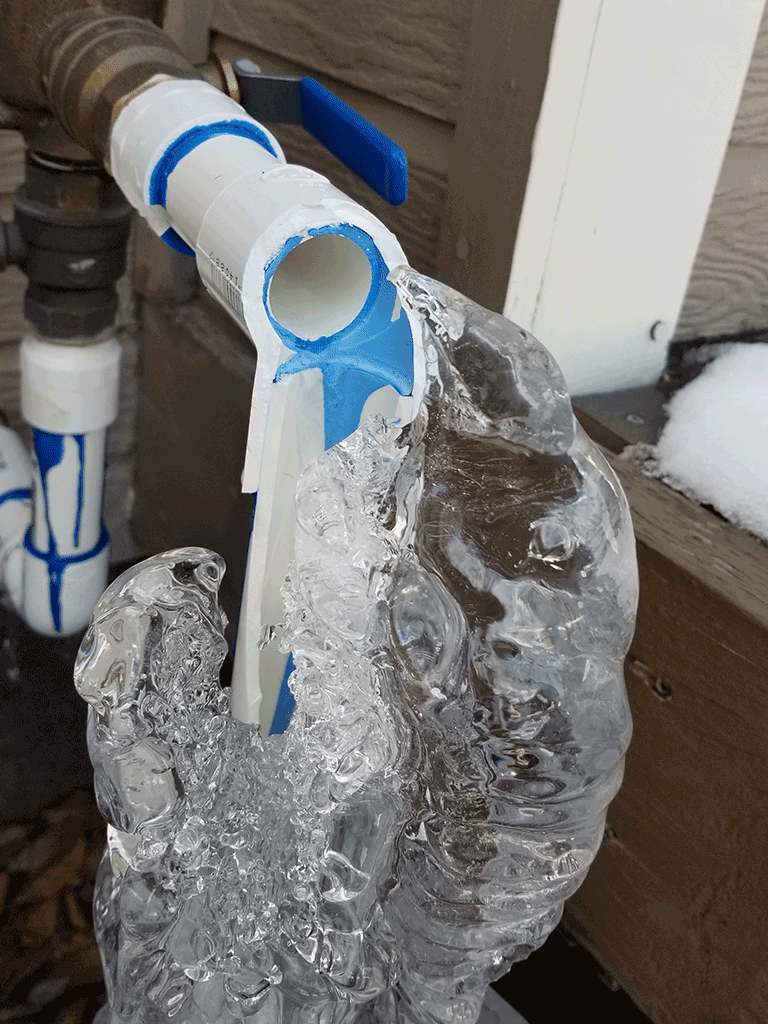Protect Against Frozen Pipes in Winter: Expert Advice
Protect Against Frozen Pipes in Winter: Expert Advice
Blog Article
Are you searching for facts and techniques around How to Prevent Your Pipes From Freezing?

Cold weather can damage your plumbing, especially by freezing pipes. Below's just how to avoid it from happening and what to do if it does.
Intro
As temperatures decrease, the danger of frozen pipes rises, potentially leading to costly fixings and water damages. Comprehending exactly how to prevent frozen pipes is essential for house owners in cold environments.
Prevention Tips
Shielding prone pipelines
Wrap pipelines in insulation sleeves or use heat tape to protect them from freezing temperature levels. Focus on pipes in unheated or exterior areas of the home.
Heating strategies
Maintain indoor spaces sufficiently heated up, specifically locations with plumbing. Open cupboard doors to permit cozy air to circulate around pipelines under sinks.
Exactly how to determine icy pipelines
Search for decreased water flow from taps, unusual smells or sounds from pipes, and visible frost on subjected pipelines.
Long-Term Solutions
Architectural changes
Consider rerouting pipes away from outside walls or unheated locations. Add additional insulation to attics, basements, and crawl spaces.
Upgrading insulation
Invest in high-grade insulation for pipes, attic rooms, and wall surfaces. Proper insulation assists keep consistent temperature levels and reduces the risk of icy pipes.
Protecting Outside Plumbing
Garden hose pipes and exterior taps
Disconnect and drain pipes yard pipes before winter months. Set up frost-proof spigots or cover outdoor taps with shielded caps.
Recognizing Icy Pipelines
What causes pipes to ice up?
Pipes ice up when revealed to temperature levels below 32 ° F (0 ° C) for prolonged durations. As water inside the pipelines ices up, it broadens, taxing the pipe walls and potentially causing them to break.
Threats and problems
Icy pipes can result in water supply disturbances, residential property damages, and costly fixings. Ruptured pipelines can flood homes and create considerable structural damages.
Indications of Frozen Piping
Identifying frozen pipes early can stop them from rupturing.
What to Do If Your Pipelines Freeze
Immediate actions to take
If you presume frozen pipelines, maintain faucets available to relieve pressure as the ice melts. Make use of a hairdryer or towels taken in warm water to thaw pipelines slowly.
Conclusion
Stopping icy pipes requires positive steps and fast responses. By recognizing the reasons, indications, and safety nets, house owners can secure their plumbing during winter.
5 Ways to Prevent Frozen Pipes
Drain Outdoor Faucets and Disconnect Hoses
First, close the shut-off valve that controls the flow of water in the pipe to your outdoor faucet. Then, head outside to disconnect and drain your hose and open the outdoor faucet to allow the water to completely drain out of the line. Turn off the faucet when done. Finally, head back to the shut-off valve and drain the remaining water inside the pipe into a bucket or container. Additionally, if you have a home irrigation system, you should consider hiring an expert to clear the system of water each year.
Insulate Pipes
One of the best and most cost-effective methods for preventing frozen water pipes is to wrap your pipes with insulation. This is especially important for areas in your home that aren’t exposed to heat, such as an attic. We suggest using foam sleeves, which can typically be found at your local hardware store.
Keep Heat Running at 65
Your pipes are located inside your walls, and the temperature there is much colder than the rest of the house. To prevent your pipes from freezing, The Insurance Information Institute suggests that you keep your home heated to at least 65 degrees, even when traveling. You may want to invest in smart devices that can keep an eye on the temperature in your home while you’re away.
Leave Water Dripping
Moving water — even a small trickle — can prevent ice from forming inside your pipes. When freezing temps are imminent, start a drip of water from all faucets that serve exposed pipes. Leaving a few faucets running will also help relieve pressure inside the pipes and help prevent a rupture if the water inside freezes.
Open Cupboard Doors
Warm your kitchen and bathroom pipes by opening cupboards and vanities. You should also leave your interior doors ajar to help warm air circulate evenly throughout your home.

I found that write up about How to Prevent Your Pipes From Freezing when perusing the internet. Sharing is caring. Helping others is fun. Thanks a lot for your time invested reading it.
Detail Report this page